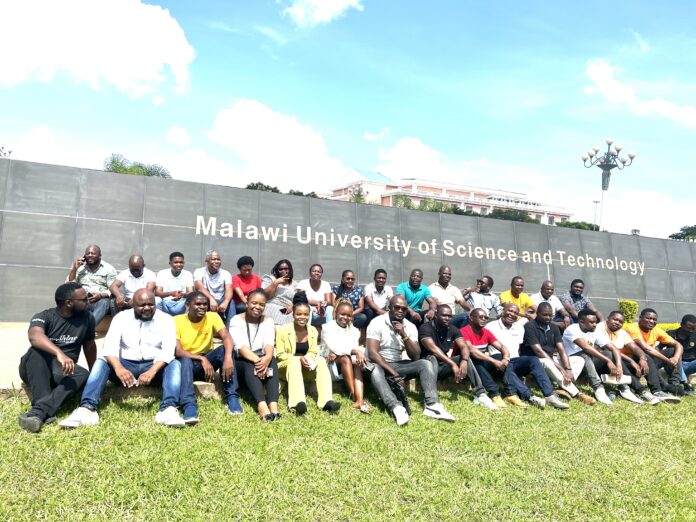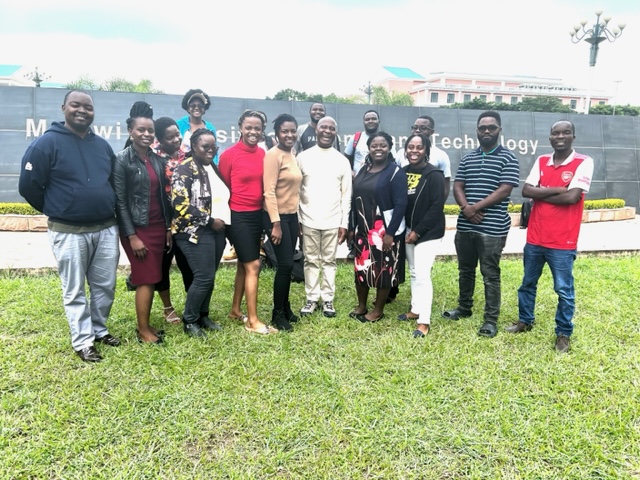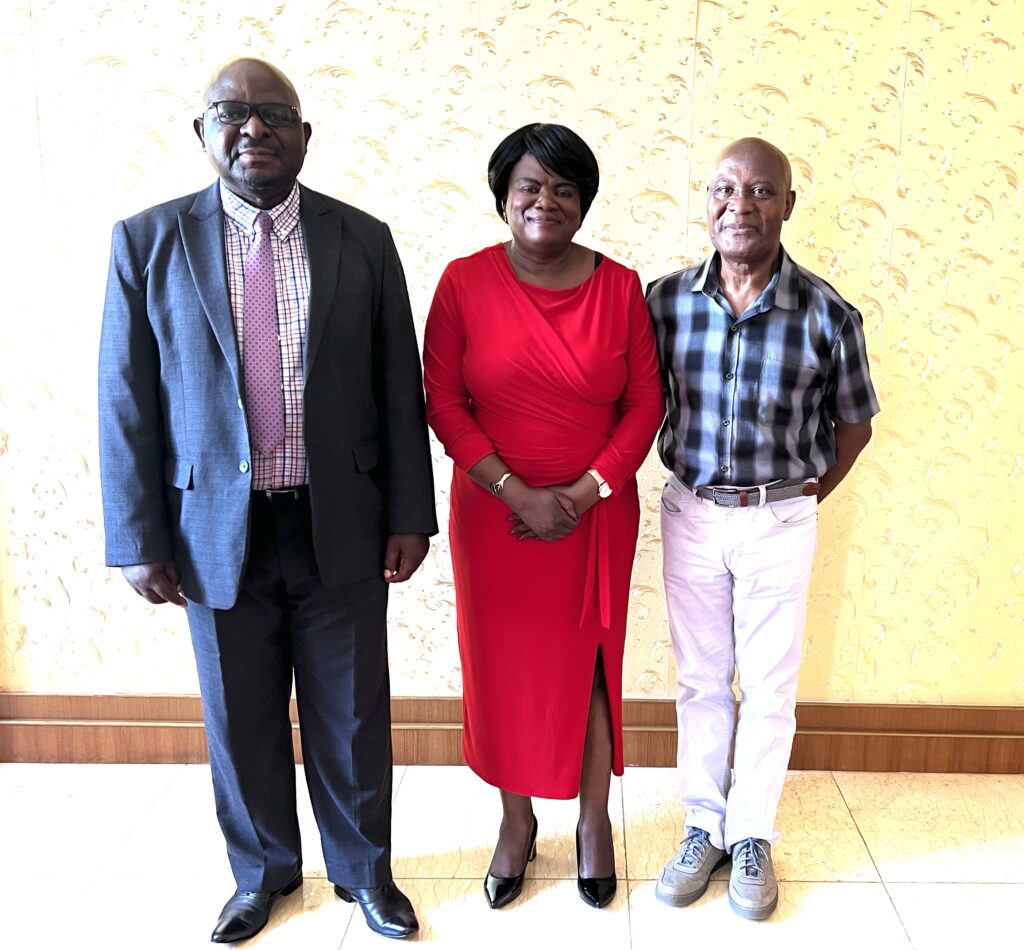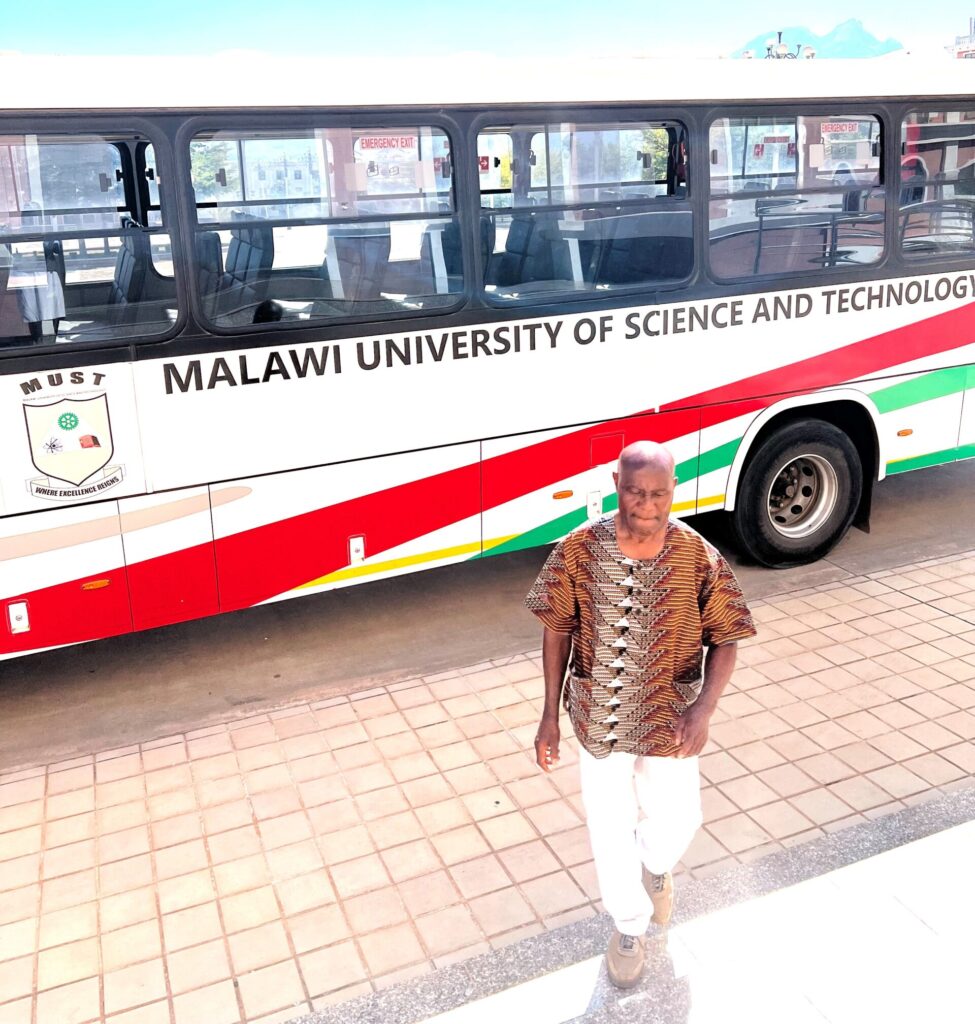
A Mercer University professor is applying his ecological expertise to classrooms, field research and STEM initiatives at a university in Malawi.
Dr. Zipangani Vokhiwa, professor of science in Mercer’s College of Professional Advancement, arrived in the southeast African country in January as a Fulbright U.S. Scholar and will complete his 10-month assignment in October.
Dr. Vokhiwa is an ecologist whose research focuses on sustainable watershed management, ecological monitoring, ecosystem approach and STEM initiatives. Originally from Malawi, he wanted to return to the country as a Fulbright U.S. Scholar so he could support Malawi University of Science and Technology, which was founded in 2014 and recently launched nine new master’s degrees and three new doctoral degrees.
“It’s such a prestigious award that I think I cried when I got the award letter,” he said. “It was such an incredible moment. The letter came on March 29 of 2023, and I said, ‘I can’t believe this,’ but here I am.”
Dr. Vokhiwa and his wife have been living in the town of Limbe, and he travels about 15.5 miles to get to the Malawi University of Science and Technology, which is in the Thyolo district.
He spent the spring teaching courses on biodiversity informatics, biology and quantitative research. He has been serving as a mentor to young faculty at the university, which has been an enjoyable and fulfilling experience for him.
Dr. Vokhiwa and a small team of graduate students and subject matter experts began field research on June 13. His comparative study will use drone technology to assess ecological damage and threats in protected and unprotected areas of the country. The researchers will visit lands in several districts of southern Malawi in an effort to identify ecological disparities.
“In particular, the study will contrast the degree of ecological harm in protected and unprotected areas, such as forests and rural areas, as well as national parks and wildlife reserves,” he said. “The study aims to offer insight into practical conservation strategies for Malawi’s natural resources by identifying and recording some of the factors causing ecological threats and damage that have affected a number of ecological zones in the country.”

Dr. Vokhiwa is also seeking funding from Malawi University of Science and Technology for a second field research project that would use information technology to analyze elements that affect environmental health and toxicology. In addition to COVID-19, cholera has also hit hard in southeastern Malawi, and the study will explore the potential contributing factors. This project builds upon the environmental health and toxicology work that Dr. Vokhiwa began in his Mercer On Mission program in Malawi.
“My research, I would like for it to be very practical, collecting data that we can speak to and publish,” he said.
In addition to the teaching and research elements of his Fulbright assignment, Dr. Vokhiwa has been involved in efforts to establish a STEM (science, technology, engineering and math) center with a STEM Education and Innovation Lab and an artificial intelligence unit at Malawi University of Science and Technology. Prior to arriving in Malawi, he recruited several American universities for a consortium to provide support for the project. He and his colleagues are currently analyzing the university’s needs and will draft a proposal that will go before the senate of the university. Once approved, they will begin work to bring the STEM center to life.
“My colleagues and I agreed that (the center) will be the platform for collaboration and exchange in the area of science and technology,” he said. “The center is so crucial. The vice chancellor is eager to see a product called a STEM center, which the Fulbright U.S. Program is playing a key role in. That is exciting to me, and I look forward to saying I was here for 10 months, our research was in this area, but also we have this center.”
Dr. Vokhiwa holds a diploma in agriculture from the University of Malawi’s Bunda College of Agriculture and bachelor’s and master’s degrees in animal sciences and a Ph.D. in rangeland ecosystem science from Colorado State University.
Prior to joining the faculty at Kennesaw State in 2003 and then Mercer in 2007, he had an extensive career in Malawi. He was a livestock officer for the Ministry of Agriculture and Natural Resources for 17 years and also served as deputy director of environmental affairs in the Ministry of Research and Environmental Affairs.
Dr. Vokhiwa led Mercer On Mission trips to Malawi during the summers of 2010, 2011 and 2013. The program focused on water quality and environmental sustainability, and students helped to install a solar-powered water pump and provided health services at an orphanage in the Zomba district. Also in 2013, he took 10 teachers and two administrators from the Atlanta area on a four-week research trip to Malawi through a Fulbright-Hays Group Projects Abroad Program award.
He hopes the collaboration and the work in Malawi will continue to grow after his Fulbright assignment has concluded. He plans to lead other Mercer On Mission trips to Malawi in the future, and the STEM center and his field research sites would serve as impactful learning environments for Mercer students as well as students of other universities in the consortium.
“The idea is to have a platform or launching pad where students can come and see what I started doing and what else can we do to expand this initiative,” he said.











